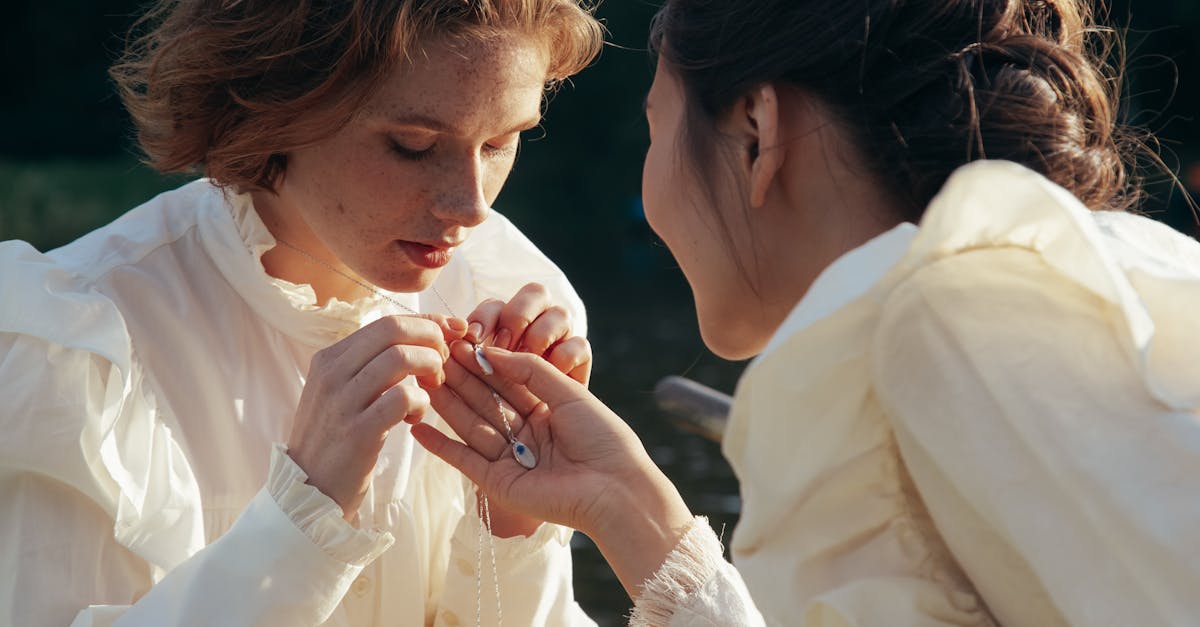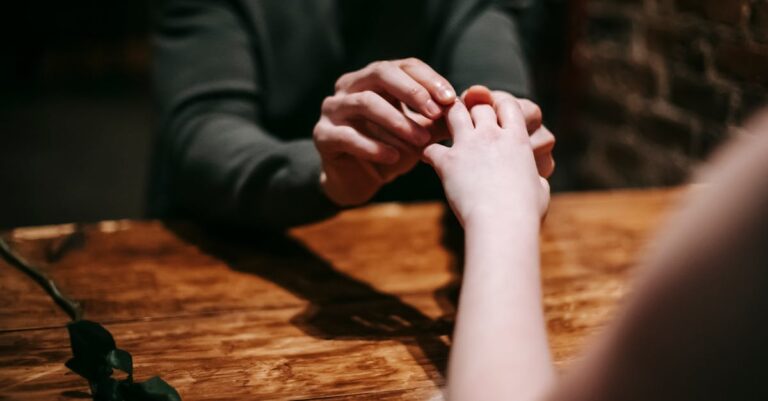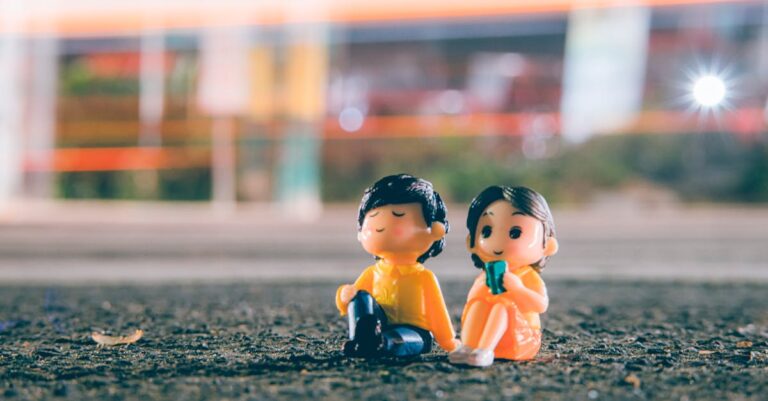
Clara’s fingers pressed into the dough, kneading until her palms burned. The bakery’s ovens hummed, filling the air with the scent of cinnamon and toasted almonds. She had always found comfort in the rhythm of it—the slap of flour, the crackle of rising bread. But today, the noise of the shop felt too loud, too close. She glanced at the clock: 4:17 p.m. The last batch of croissants would be ready in ten minutes. She needed to leave. Now.
The bell above the door jingled as she stepped outside, the late afternoon sun blinding her after the dim interior. The street was quieter than usual, the kind of stillness that made her pause. She pulled her coat tighter, the fabric stiff from the morning’s rain. A man stood near the corner, his back to her, strumming a guitar. The notes were raw, uneven, but there was something in the way he played that made her stop. She didn’t recognize the song, but it felt like something she’d heard before, buried in a memory she couldn’t name.
He turned, and she saw his face—sharp cheekbones, eyes the color of storm clouds. He smiled, but it didn’t reach his eyes. “You’re Clara,” he said. Not a question. A statement.
She frowned. “I don’t think we’ve met.”
“Eli,” he said, nodding toward the guitar. “I’m staying at the inn down the street.”
She didn’t know why she stayed. Maybe it was the way he held the instrument, like it was an extension of himself. Or the way his voice had carried over the quiet street, cutting through the hum of the town like a blade. She stepped closer, her boots crunching on gravel. “What are you doing here?”
“Just passing through,” he said, but his fingers lingered on the strings. “I need a place to stay.”
Clara hesitated. The inn was empty, its owner long gone. She had no reason to trust him, but something in his voice—something tired, like he’d been running for a long time—made her nod. “There’s a room available,” she said. “But you’ll have to work for it.”
He laughed, a low sound that made her stomach twist. “I don’t know how to bake.”
“Then you’ll learn,” she said, turning back toward the bakery. “Come at six. And don’t be late.”
—
The first day was a disaster. Eli showed up at five-thirty, his hair damp from a quick rinse in the sink. He wore a faded band t-shirt and jeans that hung off his frame like they’d never fit him. Clara had expected someone older, someone with the weight of experience. But he looked younger than she did, and that annoyed her more than it should have.
“You’re late,” she said, wiping her hands on her apron.
“Five-thirty isn’t late,” he replied, leaning against the counter. “It’s early.”
She didn’t respond. Instead, she handed him a rolling pin and pointed to the dough. “Knead. Fast. And don’t touch anything else until I say so.”
He obeyed, his movements awkward but deliberate. She watched him, noting the way his knuckles turned white as he pressed into the dough. He wasn’t used to hard work. That much was clear.
By the end of the day, he had managed to make a decent batch of scones, though they were slightly too dense. Clara didn’t say anything. She didn’t need to. The look on his face said enough—that he knew he’d failed, that he was trying anyway.
“You’re not bad,” she said as they cleaned up. “But don’t expect praise.”
He grinned. “I didn’t come here for praise.”
She didn’t know if that was true. But she liked the way he said it, like it was a challenge.
—
The days blurred together. Eli became a fixture in the bakery, his presence as much a part of the space as the ovens or the counters. He learned quickly, his hands growing calloused from the work. But there was something else, something she couldn’t quite put her finger on. He watched her when he thought she wasn’t looking, his eyes lingering on the way she moved, the way she smiled at customers.
One evening, as they wiped down the counters, he asked, “Why do you do this?”
She paused. “What do you mean?”
“The bakery. The work. It’s hard. You could do anything else.”
She thought about that. About the nights she stayed up until 2 a.m., perfecting a recipe. About the way the dough felt under her hands, like it was alive. “It’s… it’s everything,” she said finally. “It’s the only thing I’ve ever been good at.”
He didn’t say anything for a moment. Then he asked, “What about you? What do you do?”
“I play,” he said simply. “But not anymore. Not really.”
She frowned. “Why not?”
He looked away, his jaw tight. “It’s not worth it anymore.”
She didn’t press him. Instead, she handed him a cup of coffee and said, “Come back tomorrow.”
—
The tension between them grew like a slow-burning fire. It was in the way he lingered when she walked by, in the way he always seemed to know what she was going to say before she said it. They didn’t talk about it, but it was there, thick and unspoken.
One night, after the shop had closed, Clara found him sitting on the steps outside, his guitar resting against his knee. The sky was dark, the stars just beginning to peek through the clouds. He looked up when she approached, his eyes shadowed in the dim light.
“You’re still here,” she said.
“I couldn’t leave,” he replied. “Not yet.”
She sat beside him, the wood of the steps cool against her legs. “Why not?”
He didn’t answer right away. Instead, he strummed a few notes, the sound soft and low. “I don’t know,” he said finally. “Maybe I’m waiting for something.”
“What?”
He looked at her then, his expression unreadable. “I don’t know.”
She didn’t ask again. Instead, she leaned her head against his shoulder, the warmth of him grounding her in a way she hadn’t realized she needed.
—
The night before he was supposed to leave, Clara found him in the bakery, standing in front of the display case. He had a glass of wine in one hand, a cigarette in the other. The lights were off, the room lit only by the glow of the streetlamps outside.
“You’re not supposed to be here,” she said, her voice quiet.
“I know,” he replied. “But I couldn’t stay away.”
She stepped closer, her breath catching as she saw the way his eyes lingered on her. “You’re leaving tomorrow, Eli.”
He nodded, but didn’t look away. “Yeah.”
She wanted to say something—anything—but the words stuck in her throat. Instead, she reached for the cigarette, taking a slow drag before handing it back to him. The taste was bitter, but she didn’t mind.
“I don’t want you to go,” she said finally.
He exhaled, the smoke curling into the air between them. “I don’t want to either.”
She didn’t know what to say. So she kissed him. Not gently, but with a desperation that surprised even her. His hands found her waist, pulling her closer, and for a moment, everything else faded away—the bakery, the town, the weight of the world.
When they finally broke apart, she rested her forehead against his chest, listening to the steady beat of his heart. “Stay,” she whispered.
He didn’t answer right away. Instead, he looked at her, really looked at her, and for the first time, she saw something in his eyes—something that made her believe.
“I’ll stay,” he said.
And this time, she didn’t doubt him.


